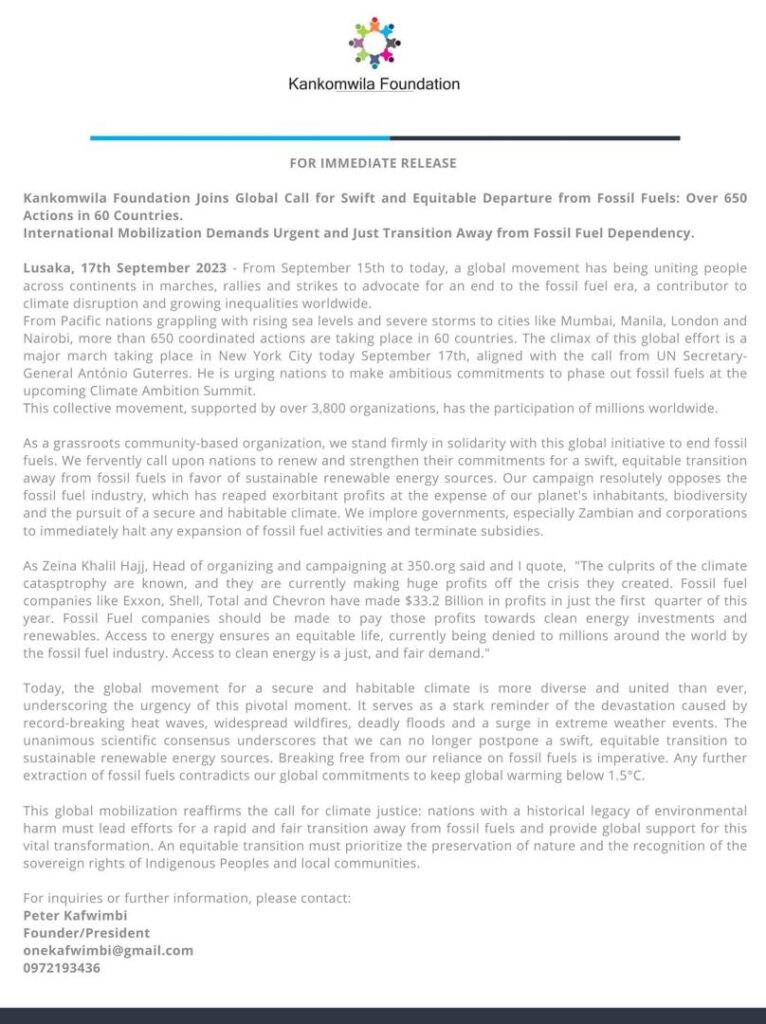Konkomwila Foundation Joins Global Demand for Swift and Equitable Fossil Fuel Transition
The Konkomwila Foundation joins the global call for an urgent, equitable shift away from fossil fuels. With over 650 coordinated actions across 60 countries from September 25th to today, this movement aims to combat climate disruption and address growing global inequalities exacerbated by fossil fuel reliance.
Today, on September 17, 2023, Peter Kafwimbi, Founder/President of the Konkomwila Foundation, emphasized the importance of this global effort. Over 650 coordinated actions have occurred within 60 minutes, culminating in a major march in New York City today, aligned with UN Secretary-General Antonio Guterres’ call to phase out fossil fuels at the upcoming Climate Ambition Summit.
Supported by over 3,800 organizations, this collective movement passionately advocates for a swift and equitable transition away from fossil fuels to sustainable renewable energy sources. The campaign opposes the fossil fuel industry, which has profited immensely at the expense of the planet’s inhabitants, biodiversity, and a habitable climate.
The Konkomwila Foundation urges governments, including Zambia, and corporations to cease expanding fossil fuel activities and end subsidies. Fossil fuel companies like Exxon, Shell, Total, and Chevron have made $33.2 billion in profits in the first quarter of this year. These profits should be invested in clean energy and renewables, ensuring equitable access to clean energy worldwide.
Today, the global movement for a habitable climate is more diverse and united than ever, underscoring the urgency of this moment. It highlights the devastating impact of extreme weather events, emphasizing the need for a swift transition to sustainable renewable energy sources. Breaking free from fossil fuels is imperative to meet global commitments and keep global warming below 1.5 degrees Celsius.
This global mobilization reaffirms the call for climate justice, urging nations with a legacy of environmental harm to lead the transition away from fossil fuels while supporting this vital transformation. An equitable transition must prioritize nature preservation and respect the sovereignty of indigenous peoples and local communities.



